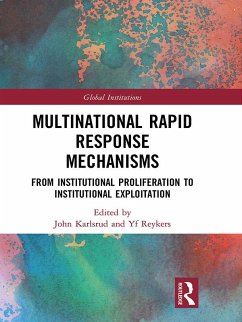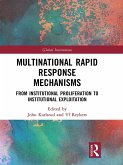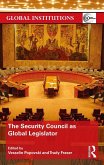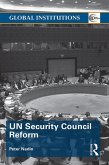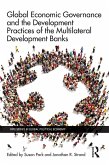Multinational Rapid Response Mechanisms (eBook, ePUB)
From Institutional Proliferation to Institutional Exploitation
Redaktion: Karlsrud, John; Reykers, Yf
41,95 €
41,95 €
inkl. MwSt.
Sofort per Download lieferbar

21 °P sammeln
41,95 €
Als Download kaufen

41,95 €
inkl. MwSt.
Sofort per Download lieferbar

21 °P sammeln
Jetzt verschenken
Alle Infos zum eBook verschenken
41,95 €
inkl. MwSt.
Sofort per Download lieferbar
Alle Infos zum eBook verschenken

21 °P sammeln
Multinational Rapid Response Mechanisms (eBook, ePUB)
From Institutional Proliferation to Institutional Exploitation
Redaktion: Karlsrud, John; Reykers, Yf
- Format: ePub
- Merkliste
- Auf die Merkliste
- Bewerten Bewerten
- Teilen
- Produkt teilen
- Produkterinnerung
- Produkterinnerung

Bitte loggen Sie sich zunächst in Ihr Kundenkonto ein oder registrieren Sie sich bei
bücher.de, um das eBook-Abo tolino select nutzen zu können.
Hier können Sie sich einloggen
Hier können Sie sich einloggen
Sie sind bereits eingeloggt. Klicken Sie auf 2. tolino select Abo, um fortzufahren.

Bitte loggen Sie sich zunächst in Ihr Kundenkonto ein oder registrieren Sie sich bei bücher.de, um das eBook-Abo tolino select nutzen zu können.
This book is the first comprehensive and comparative contribution to explore and identify the key factors that hamper and enable the development and deployment of multinational rapid response mechanisms.
- Geräte: eReader
- mit Kopierschutz
- eBook Hilfe
- Größe: 0.86MB
Andere Kunden interessierten sich auch für
![Multinational Rapid Response Mechanisms (eBook, PDF) Multinational Rapid Response Mechanisms (eBook, PDF)]() Multinational Rapid Response Mechanisms (eBook, PDF)41,95 €
Multinational Rapid Response Mechanisms (eBook, PDF)41,95 €![Norm Change in International Relations (eBook, ePUB) Norm Change in International Relations (eBook, ePUB)]() John KarlsrudNorm Change in International Relations (eBook, ePUB)38,95 €
John KarlsrudNorm Change in International Relations (eBook, ePUB)38,95 €![The Security Council as Global Legislator (eBook, ePUB) The Security Council as Global Legislator (eBook, ePUB)]() The Security Council as Global Legislator (eBook, ePUB)39,95 €
The Security Council as Global Legislator (eBook, ePUB)39,95 €![UN Security Council Reform (eBook, ePUB) UN Security Council Reform (eBook, ePUB)]() Peter NadinUN Security Council Reform (eBook, ePUB)48,95 €
Peter NadinUN Security Council Reform (eBook, ePUB)48,95 €![United Nations Industrial Development Organization (eBook, ePUB) United Nations Industrial Development Organization (eBook, ePUB)]() Stephen BrowneUnited Nations Industrial Development Organization (eBook, ePUB)41,95 €
Stephen BrowneUnited Nations Industrial Development Organization (eBook, ePUB)41,95 €![Global Economic Governance and the Development Practices of the Multilateral Development Banks (eBook, ePUB) Global Economic Governance and the Development Practices of the Multilateral Development Banks (eBook, ePUB)]() Global Economic Governance and the Development Practices of the Multilateral Development Banks (eBook, ePUB)41,95 €
Global Economic Governance and the Development Practices of the Multilateral Development Banks (eBook, ePUB)41,95 €![Wartime Origins and the Future United Nations (eBook, ePUB) Wartime Origins and the Future United Nations (eBook, ePUB)]() Wartime Origins and the Future United Nations (eBook, ePUB)47,95 €
Wartime Origins and the Future United Nations (eBook, ePUB)47,95 €-
-
-
This book is the first comprehensive and comparative contribution to explore and identify the key factors that hamper and enable the development and deployment of multinational rapid response mechanisms.
Dieser Download kann aus rechtlichen Gründen nur mit Rechnungsadresse in A, B, BG, CY, CZ, D, DK, EW, E, FIN, F, GR, HR, H, IRL, I, LT, L, LR, M, NL, PL, P, R, S, SLO, SK ausgeliefert werden.
Produktdetails
- Produktdetails
- Verlag: Taylor & Francis eBooks
- Seitenzahl: 216
- Erscheinungstermin: 19. Dezember 2018
- Englisch
- ISBN-13: 9781351005326
- Artikelnr.: 56888071
- Verlag: Taylor & Francis eBooks
- Seitenzahl: 216
- Erscheinungstermin: 19. Dezember 2018
- Englisch
- ISBN-13: 9781351005326
- Artikelnr.: 56888071
- Herstellerkennzeichnung Die Herstellerinformationen sind derzeit nicht verfügbar.
John Karlsrud is senior research fellow and manager for the Training for Peace program at the Norwegian Institute of International Affairs (NUPI), and external associate at the Centre for the Study of Globalisation and Regionalisation, University of Warwick, where he also earned his PhD. He has been a Fulbright fellow at the Centre on International Cooperation, New York University (NYU), and a visiting fellow at the International Peace Institute, New York. John works on peacekeeping, peacebuilding, and humanitarian issues. Books include Norm Change in International Relations (Routledge, 2016), and The Future of African Peace Operations: From the Janjaweed to Boko Haram (Zed Books, 2016, co-edited with Cedric de Coning and Linnea Gelot). Yf Reykers is a post-doctoral research fellow at the Leuven International and European Studies Institute at KU Leuven, Belgium, where he also obtained his PhD in 2017. He has been a visiting scholar at the Center on International Cooperation at NYU and at Aarhus University. His research focuses on multinational military operations. He studies issues relating to the accountability of military interventions, rapid response mechanisms, and inter-organizational relations. His work has been published in journals including Contemporary Security Policy, European Security, International Peacekeeping, and Parliamentary Affairs.
Introduction: Rapid response mechanisms-strengthening defense cooperation
and saving strangers? PART I: INSTITUTIONAL ANALYSIS OF RAPID RESPONSE
MECHANISMS 1. Tools in a toolbox: The African Union's repertoire of
mechanisms for addressing peace and security on the continent 2. EU
Battlegroups: From standby to standstill 3. The NATO Response Force:
Bellwether of NATO's commitment to regional deterrence 4. United Nations
rapid reaction mechanisms: Toward a global force on standby? PART II:
MULTINATIONAL OPERATIONS IN PRACTICE 5. Multinational rapid response forces
in the Democratic Republic of Congo-another example of winning battles, but
losing the peace? 6. Rapid response and inter-organizational competition:
Four international organizations, two key states, and the crisis in the
Central African Republic 7. Tangled up in glue: Multilateral crisis
responses in Mali 8. EU-NATO inter-organizational relations in
counter-piracy operations off the Horn of Africa 9. Conclusion: Military
rapid response-from institutional investment to ad hoc solutions
and saving strangers? PART I: INSTITUTIONAL ANALYSIS OF RAPID RESPONSE
MECHANISMS 1. Tools in a toolbox: The African Union's repertoire of
mechanisms for addressing peace and security on the continent 2. EU
Battlegroups: From standby to standstill 3. The NATO Response Force:
Bellwether of NATO's commitment to regional deterrence 4. United Nations
rapid reaction mechanisms: Toward a global force on standby? PART II:
MULTINATIONAL OPERATIONS IN PRACTICE 5. Multinational rapid response forces
in the Democratic Republic of Congo-another example of winning battles, but
losing the peace? 6. Rapid response and inter-organizational competition:
Four international organizations, two key states, and the crisis in the
Central African Republic 7. Tangled up in glue: Multilateral crisis
responses in Mali 8. EU-NATO inter-organizational relations in
counter-piracy operations off the Horn of Africa 9. Conclusion: Military
rapid response-from institutional investment to ad hoc solutions
Introduction: Rapid response mechanisms-strengthening defense cooperation
and saving strangers? PART I: INSTITUTIONAL ANALYSIS OF RAPID RESPONSE
MECHANISMS 1. Tools in a toolbox: The African Union's repertoire of
mechanisms for addressing peace and security on the continent 2. EU
Battlegroups: From standby to standstill 3. The NATO Response Force:
Bellwether of NATO's commitment to regional deterrence 4. United Nations
rapid reaction mechanisms: Toward a global force on standby? PART II:
MULTINATIONAL OPERATIONS IN PRACTICE 5. Multinational rapid response forces
in the Democratic Republic of Congo-another example of winning battles, but
losing the peace? 6. Rapid response and inter-organizational competition:
Four international organizations, two key states, and the crisis in the
Central African Republic 7. Tangled up in glue: Multilateral crisis
responses in Mali 8. EU-NATO inter-organizational relations in
counter-piracy operations off the Horn of Africa 9. Conclusion: Military
rapid response-from institutional investment to ad hoc solutions
and saving strangers? PART I: INSTITUTIONAL ANALYSIS OF RAPID RESPONSE
MECHANISMS 1. Tools in a toolbox: The African Union's repertoire of
mechanisms for addressing peace and security on the continent 2. EU
Battlegroups: From standby to standstill 3. The NATO Response Force:
Bellwether of NATO's commitment to regional deterrence 4. United Nations
rapid reaction mechanisms: Toward a global force on standby? PART II:
MULTINATIONAL OPERATIONS IN PRACTICE 5. Multinational rapid response forces
in the Democratic Republic of Congo-another example of winning battles, but
losing the peace? 6. Rapid response and inter-organizational competition:
Four international organizations, two key states, and the crisis in the
Central African Republic 7. Tangled up in glue: Multilateral crisis
responses in Mali 8. EU-NATO inter-organizational relations in
counter-piracy operations off the Horn of Africa 9. Conclusion: Military
rapid response-from institutional investment to ad hoc solutions
